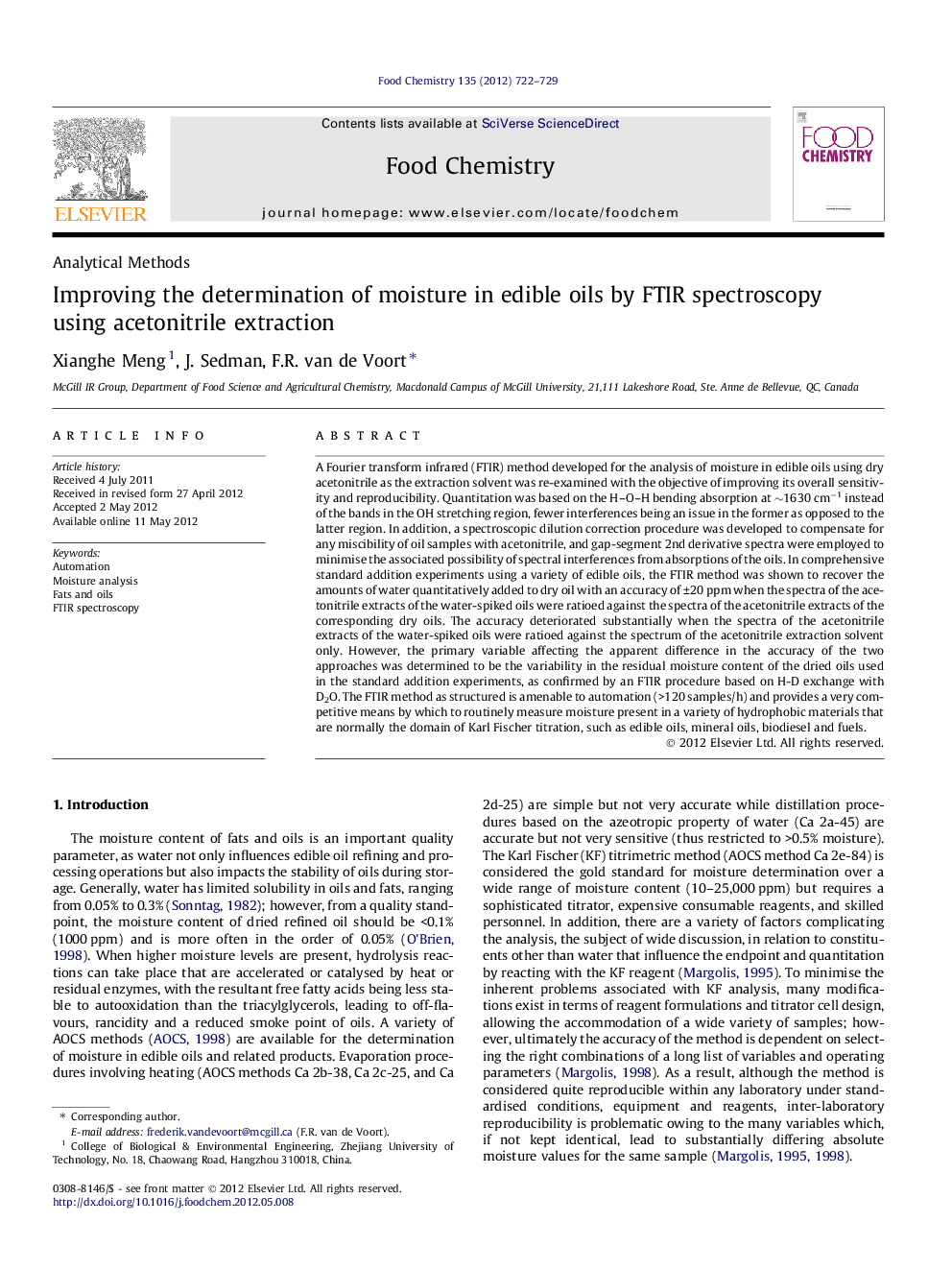| Article ID | Journal | Published Year | Pages | File Type |
|---|---|---|---|---|
| 1185817 | Food Chemistry | 2012 | 8 Pages |
A Fourier transform infrared (FTIR) method developed for the analysis of moisture in edible oils using dry acetonitrile as the extraction solvent was re-examined with the objective of improving its overall sensitivity and reproducibility. Quantitation was based on the H–O–H bending absorption at ∼1630 cm−1 instead of the bands in the OH stretching region, fewer interferences being an issue in the former as opposed to the latter region. In addition, a spectroscopic dilution correction procedure was developed to compensate for any miscibility of oil samples with acetonitrile, and gap-segment 2nd derivative spectra were employed to minimise the associated possibility of spectral interferences from absorptions of the oils. In comprehensive standard addition experiments using a variety of edible oils, the FTIR method was shown to recover the amounts of water quantitatively added to dry oil with an accuracy of ±20 ppm when the spectra of the acetonitrile extracts of the water-spiked oils were ratioed against the spectra of the acetonitrile extracts of the corresponding dry oils. The accuracy deteriorated substantially when the spectra of the acetonitrile extracts of the water-spiked oils were ratioed against the spectrum of the acetonitrile extraction solvent only. However, the primary variable affecting the apparent difference in the accuracy of the two approaches was determined to be the variability in the residual moisture content of the dried oils used in the standard addition experiments, as confirmed by an FTIR procedure based on H-D exchange with D2O. The FTIR method as structured is amenable to automation (>120 samples/h) and provides a very competitive means by which to routinely measure moisture present in a variety of hydrophobic materials that are normally the domain of Karl Fischer titration, such as edible oils, mineral oils, biodiesel and fuels.
► Improved quantitation of moisture in edible oils by FTIR spectroscopy. ► Based on FTIR analysis of acetonitrile extracts of oils. ► Calibration by spiking water into acetonitrile shown to be universally applicable. ► Sensitivity of method suitable for measuring low levels of moisture (<100 ppm). ► Automatable alternative to Karl Fischer titration.
